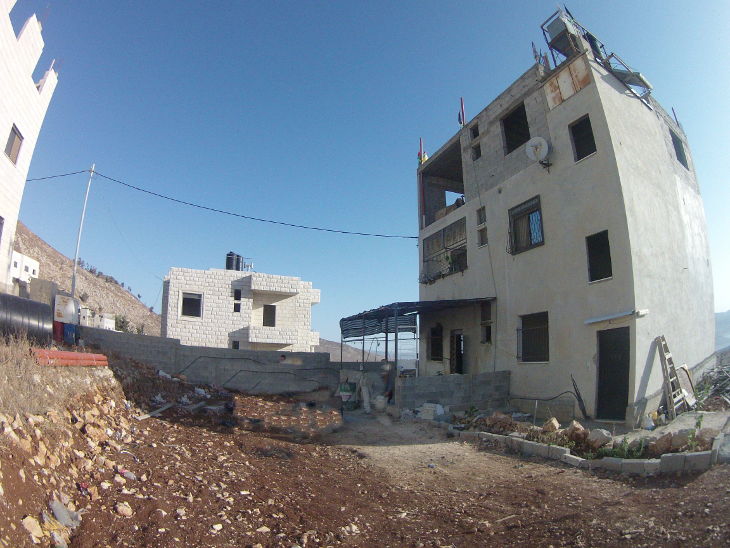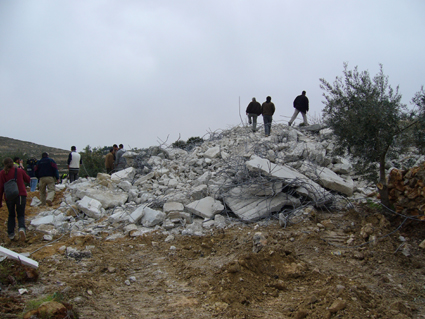Category: Nablus
-
Palestinian and international civilians will resist revenge home demolitions on the second night in a row
17th October 2015 | International Solidarity Movement, Nablus team | Nablus area, occupied Palestine Palestinian civilians joined by International solidarity activists will gather tonight, Friday 17, October 2015, at the Nablus city homes of Yahya Hamad, Karam Al-masri and Sameer Al-kosa after Israeli forces threatened revenge demolitions. This action of resistance started on the 15th of…
-
Palestinian and international civilians to resist revenge home demolitions
16th October 2015 | International Solidarity Movement, Al-Khalil team | Nablus area, occupied Palestine Palestinian civilians joined by International solidarity activists will gather tonight, Friday 16, October 2015, at the Nablus city homes of Yahya Hamad, Karam Al-masri and Sameer Al-kosa after Israeli forces threatened revenge demolitions within 24 hours. Yesterday night, hundreds of Palestinians…
-
Settlers terrorize Palestinian farmers in Burin: burn trees and disrupt olive harvest
14th October 2015 | International Solidarity Movement, Nablus team | Burin, occupied Palestine A Palestinian farmer and English human rights defender have been hospitalized and at least 40 olive trees burnt following an attack by illegal Israeli settlers in the northern West Bank town of Burin today. At 10am this morning, as ISM and other…



